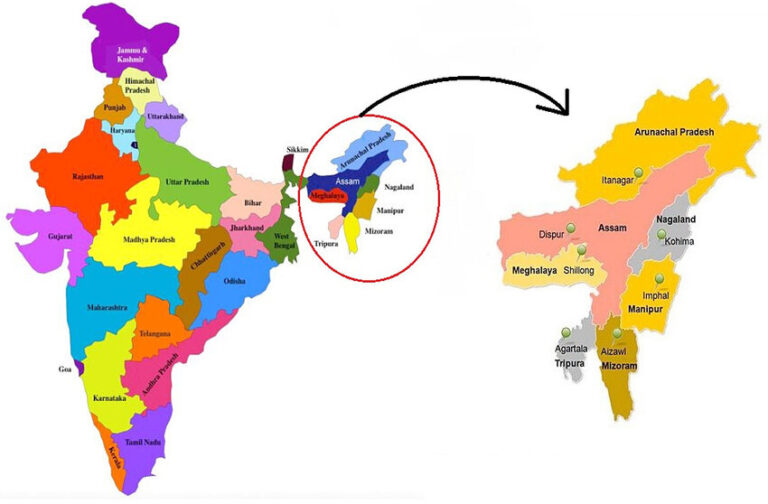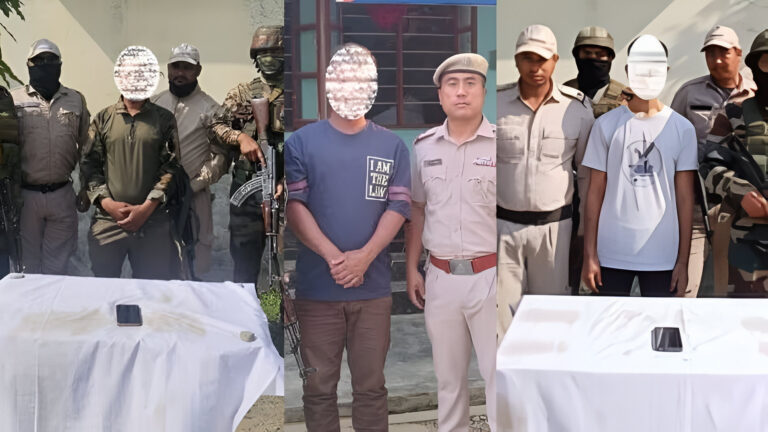Manipur: Eastern Liangmai chiefs oppose proposed “German road” project through Naga ancestral lands
Summary of the News Article
The Eastern Liangmai Chief/Chairman Association (ELCCA) has taken a firm stand against the proposed “German Road” (also called the “Tiger Road”), a road project intended to link Kangpokpi and Churachandpur. The ELCCA asserts that the plan intrudes on Naga ancestral lands, stating there’s no historical or legal basis—neither past nor present—for such a road. They warn it would provoke tension and possibly spark communal unrest. They also demand the dismantling of Suspension of Operations (SoO) camps of Kuki militant groups near Naga territories, citing them as ongoing threats. The ELCCA appeals to the central government and the Ministry of Home Affairs to uphold Naga territorial sanctity.
Introduction: When Development Trips Over Identity
Ever seen a bulldozer roll into a sacred place—only to discover it’s trampling centuries of heritage? That’s essentially what’s happening with the proposed “German Road”” in Manipur. Picture this: a ribbon of asphalt punching right through lands sacred to the Naga people. Now, imagine the uproar. That uproar is real, and it’s coming from the Eastern Liangmai Chief/Chairman Association (ELCCA). They’re saying, “Stop! This ‘road to progress’ cuts through our identity, our roots.” Today, we’re diving deep into why this isn’t just about roads—it’s about history, rights, and respect.
What Exactly Is the “German Road”?
The Project at a Glance
- Goal: Connect Kangpokpi to Churachandpur via a direct roadway, dubbed “German Road” or “Tiger Road.”
- Supporters: Allegedly proposed by Kuki interest groups aiming to enhance regional connectivity.
- Controversy: The ELCCA responds by stating this road never existed historically, isn’t in land records, and carries no legitimacy under Naga custom.
The Key Players
- Eastern Liangmai Chief/Chairman Association (ELCCA): A powerful tribal body defending Naga ancestral lands spanning Kangpokpi to Churachandpur.
- Kuki community: Some factions see this road as a development “wishlist,” to improve access. ELCCA strongly contest, claiming it as a fabrication.
- Government of India / MHA: Someone needs to say “yes” or “no” to this proposal—and ELCCA is urging them to side with legal land rights and peace.
Conclusion: Infrastructure vs Identity—It’s Never Just a Road
The “German Road” debate is a microcosm of India’s evolving identity-development balancing act. Push for roads, jobs, growth—but not by erasing the past or threatening tribal integrity. The ELCCA is calling “hold up.” The road remains unbuilt for now—but its fate will define how India’s democracy negotiates its future, one ancestral path at a time.
FAQs
1. What is the “German Road” project?
A proposed roadway connecting Kangpokpi and Churachandpur, dubbed “German Road” or “Tiger Road,” currently opposed for intruding on tribal land.
2. Why are the Eastern Liangmai chiefs opposing it?
They maintain there’s no such historical or legal road—building it would violate Naga ancestral land sanctity.
3. What are SoO camps, and how do they relate?
Suspension of Operation camps are bases of Kuki militant groups. ELCCA sees them as threats and wants them dismantled
4. What could happen if the project goes ahead?
According to ELCCA, it could spark protests or communal violence due to the land’s sensitive build-up.
5. What are possible resolutions?
Rigorous land title verification, community consultation, rerouting the road, and removing SoO camps near Naga areas.



